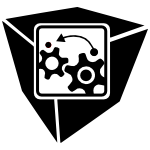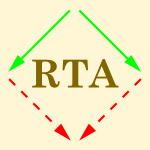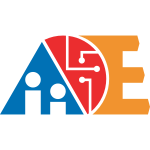Travelled to:1 × Brazil
1 × Croatia
1 × Germany
3 × Canada
5 × USA
Collaborated with:J.Avenhaus J.Aycock R.Cottrell R.J.Walker Nick Nygren J.Gao S.Schulz Chris Winder Attala Malik Michael Blackadar B.Stephenson Timothy Davison Daniel Wehr R.Holmes H.Kasinger B.Bauer M.Fuchs J.Müller Alex Fink Stephen Wiens Sanjeev Paskaradevan Arkady Eidelberg Christian Jacob 0001 J.Szabo R.Acton J.J.C.Chang Kevin Loose Darryl Gates John W. Buchanan D.Williams-King B.Goyette
Talks about:game (9) behavior (6) use (6) learn (5) comput (4) distribut (3) techniqu (3) theorem (3) coordin (3) player (3)
Person: Jörg Denzinger
 DBLP: Denzinger:J=ouml=rg
DBLP: Denzinger:J=ouml=rg
Contributed to:
Wrote 23 papers:
- MLDM-2013-GaoD #data mining #distributed #mining #performance #using
- Improving the Efficiency of Distributed Data Mining Using an Adjustment Work Flow (JG, JD), pp. 69–83.
- ICSM-2009-HolmesCWD #case study #source code #using
- The end-to-end use of source code examples: An exploratory study (RH, RC, RJW, JD), pp. 555–558.
- SAC-2009-KasingerDB #coordination #distributed
- Decentralized coordination of homogeneous and heterogeneous agents by digital infochemicals (HK, JD, BB), pp. 1223–1224.
- VISSOFT-2009-CottrellGHWD #source code #visual notation
- Compare and contrast: Visual exploration of source code examples (RC, BG, RH, RJW, JD), pp. 29–32.
- FSE-2008-CottrellWD #reuse #source code
- Semi-automating small-scale source code reuse via structural correspondence (RC, RJW, JD), pp. 214–225.
- SAC-2008-SzaboAAD
- The tale of the weather worm (JS, JA, RA, JD), pp. 2097–2102.
- ESEC-FSE-2007-CottrellCWD
- Determining detailed structural correspondence for generalization tasks (RC, JJCC, RJW, JD), pp. 165–174.
- CADE-1996-DenzingerS #learning #proving #theorem proving
- Learning Domain Knowledge to Improve Theorem Proving (JD, SS), pp. 62–76.
- RTA-1995-AvenhausDF #deduction #distributed #equation #named
- DISCOUNT: A SYstem for Distributed Equational Deduction (JA, JD, MF), pp. 397–402.
- RTA-1993-AvenhausD #equation #proving #theorem proving
- Distributing Equational Theorem Proving (JA, JD), pp. 62–76.
- RTA-1989-AvenhausDM #named #performance #proving #theorem proving
- THEOPOGLES — An efficient Theorem Prover based on Rewrite-Techniques (JA, JD, JM), pp. 538–541.
- CIG-2005-DenzingerLGB #behaviour #game studies #testing
- Dealing with Parameterized Actions in Behavior Testing of Commercial Computer Games (JD, KL, DG, JWB).
- CIG-2005-DenzingerW #behaviour #learning
- Combining Coaching and Learning to Create Cooperative Character Behavior (JD, CW).
- CIG-2007-FinkDA #behaviour #game studies #machine learning #using
- Extracting NPC behavior from computer games using computer vision and machine learning techniques (AF, JD, JA), pp. 24–31.
- CIG-2009-MalikD #behaviour #coordination #metaprogramming #multi #testing #using
- Improving testing of multi-unit computer players for unwanted behavior using coordination macros (AM, JD), pp. 355–362.
- AIIDE-2011-BlackadarD #behaviour #contest #testing
- Behavior Learning-Based Testing of Starcraft Competition Entries (MB, JD).
- CIG-2011-NygrenDSA #automation #framework #game studies #generative #platform
- User-preference-based automated level generation for platform games (NN, JD, BS, JA), pp. 55–62.
- AIIDE-2012-Williams-KingDAS #automation #game studies #generative #standard
- The Gold Standard: Automatically Generating Puzzle Game Levels (DWK, JD, JA, BS).
- CIG-2012-DavisonD #coordination #game studies
- The huddle: Combining AI techniques to coordinate a player's game characters (TD, JD), pp. 203–210.
- CIG-2013-WiensDP #behaviour #game studies #learning #scalability
- Creating large numbers of game AIs by learning behavior for cooperating units (SW, JD, SP), pp. 1–8.
- CIG-2015-WehrD #game studies #mining
- Mining game logs to create a playbook for unit AIs (DW, JD), pp. 391–398.
- CoG-2019-Eidelberg0D #game studies #performance #using
- Using Active Probing by a Game Management AI to Faster Classify Players (AE, CJ0, JD), pp. 1–8.
- CoG-2019-NygrenD #case study #concept #game studies #self #using
- Using Simple Games to Evaluate Self-Organization Concepts: a Whack-a-mole Case Study (NN, JD), pp. 1–8.





















